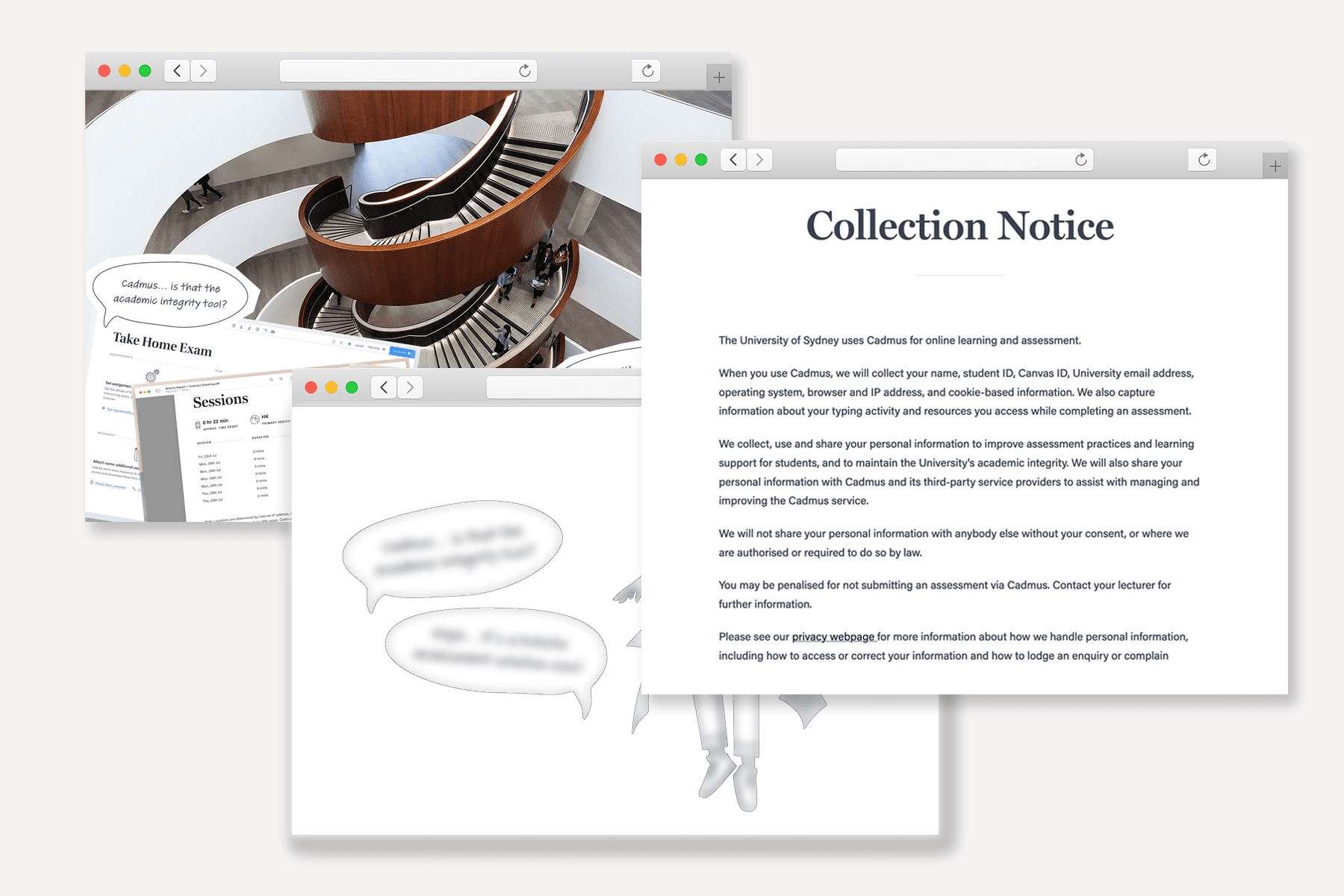Amidst a delay on decision-making for Cadmus in the eTools subcommittee, it was revealed that the University of Sydney Business School had used Cadmus for more units than were originally approved in their pilot program.
SRC President Lia Perkins told Honi that “At a recent meeting I spoke about the genuine student concern of the introduction of Cadmus, a piece of software which is framed around academic support and integrity. The private company unnecessarily gathers student data and when used in assessment students are unable to reject its use.
“I wasn’t the only person at the committee opposed to approving this software, which I hope indicates it will be rejected at the next meeting.”
After the perceived success of the pilot program, the Business School wants to continue their use of Cadmus in the units currently using it. This is despite the extensive nature of Cadmus’ data collection and the concerns raised by Perkins and others in the eTools subcommittee.
The original pilot program involved the use of Cadmus in six units. A University of Sydney spokesperson told Honi that “After the successful trial of its use in six units in 2022, the pilot was extended and currently 13 units are using Cadmus this semester.”
Cadmus is currently being used in the following units: BUSS1000/BCAW: Future of Business, OLES2210: Succeeding in a Post-Crisis World, QBUS3330: Methods of Decision Analysis, QBUS3340: Operations Management, QBUS3350: Project Planning and Management, FINC5001: Foundation in Finance, BUSS5220: Responsible Business Mindset, ITLS6010: Logistics and Supply Chain Management Systems, BUSS6105: Leading in a Post-Crisis World, ITLS6202: Sustainable Logistics and Procurement, and QBUS6600: Data Analytics for Business Capstone.
This means that at least 4,741 students are currently required to use Cadmus for their assignments.
Whilst the Business School and Cadmus were quick to tell Honi of the positive feedback from students using Cadmus, disclaimers are currently being added to courses to explain to students what data is being collected from Cadmus and other tools. It is difficult to understand how the positive feedback previously received can be meaningful if students were not made fully aware of the data being collected as part of their use.
At the end of the eTools subcommittee’s most recent meeting, after disagreement about the software’s use, the decision was postponed to their next meeting in October.





